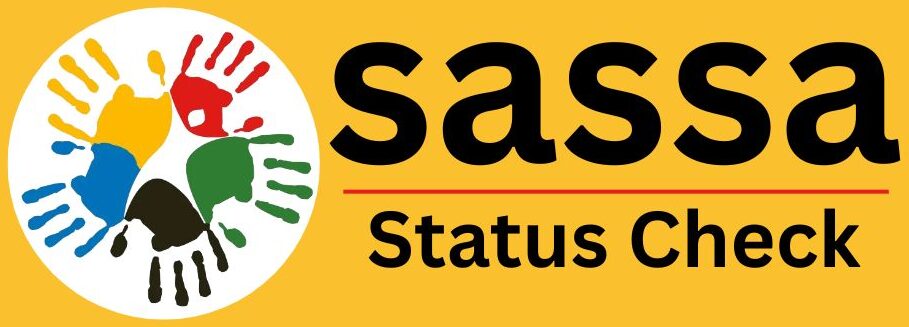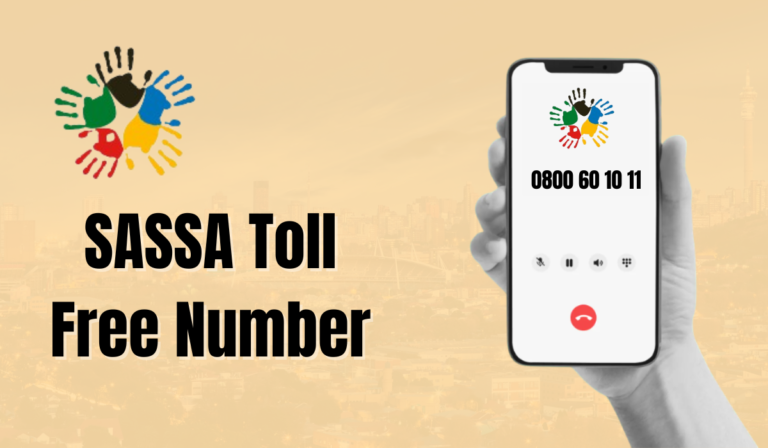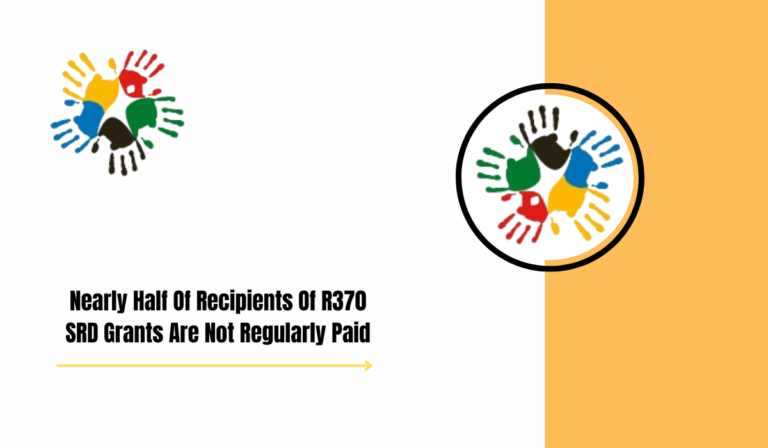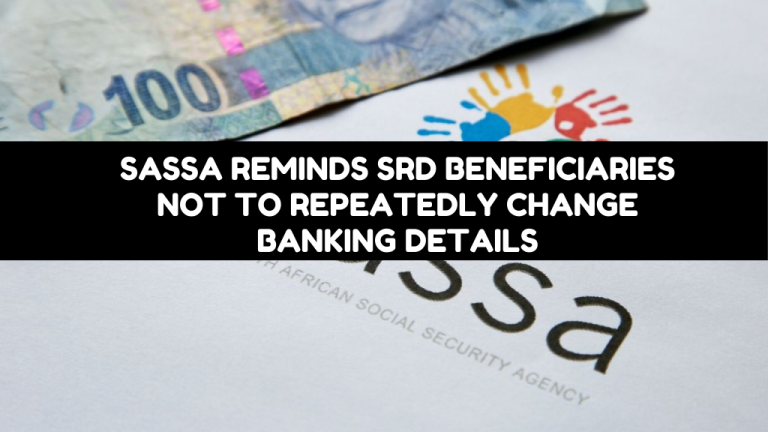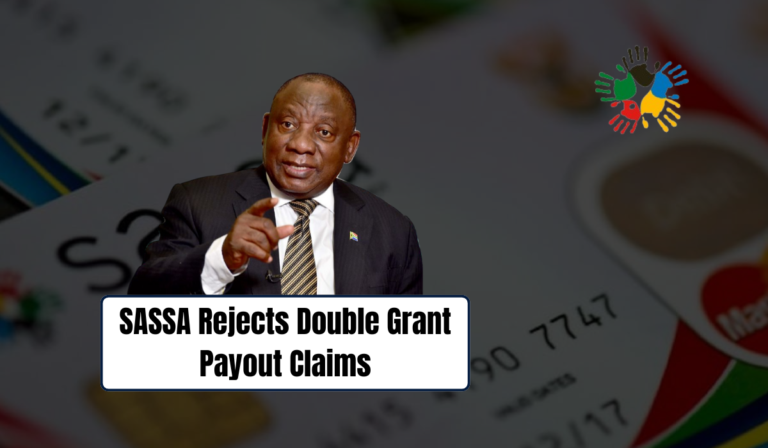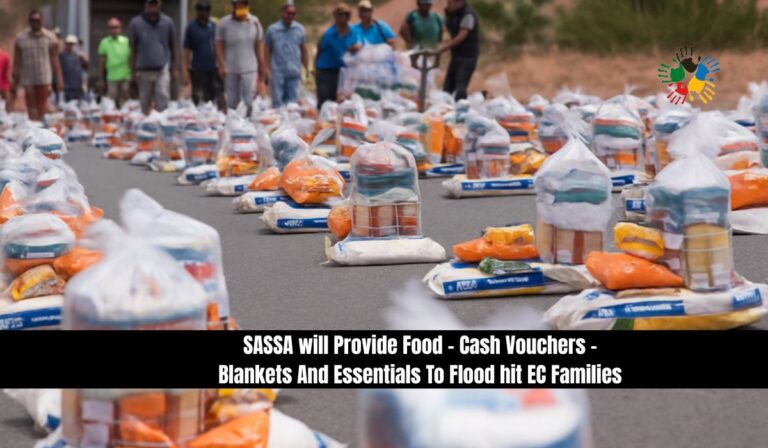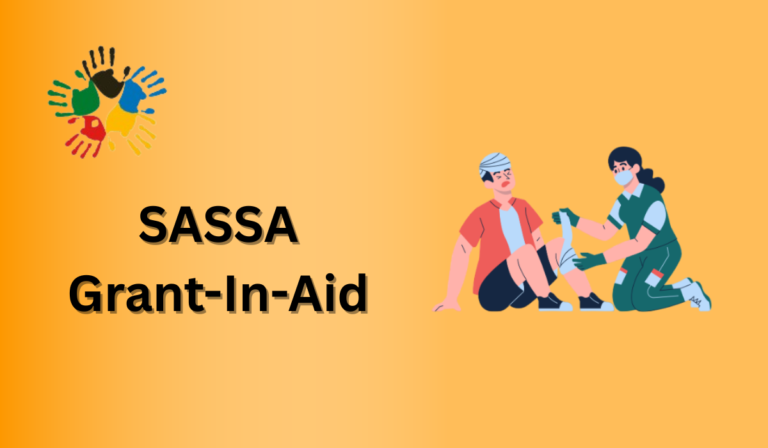Tolashe Granted Leave To Appeal SASSA 2023 Regulations Judgment
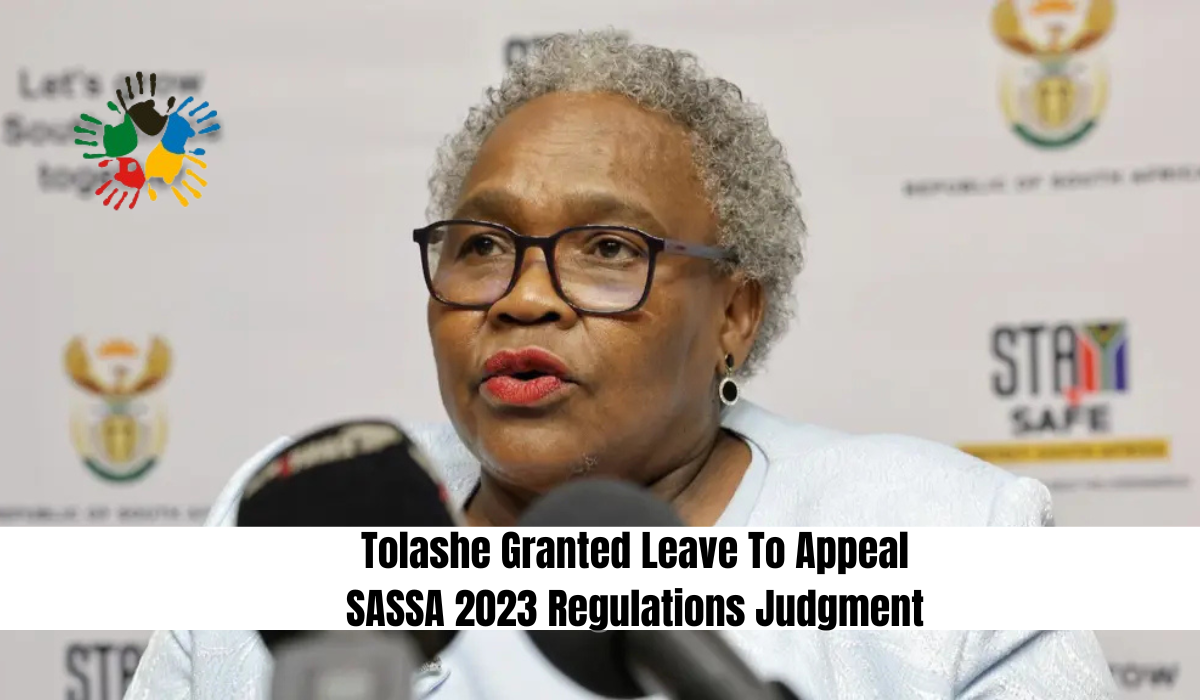
Tolashe Granted Leave To Appeal SASSA 2023 Regulations Judgment. The South African Social Security Agency (SASSA) plays a crucial role in providing financial assistance to millions of vulnerable citizens through various grants. However, regulatory changes in 2023 led to a legal battle over the accessibility and fairness of these grants, particularly the R370 grant. The Gauteng High Court in Pretoria found certain provisions of these regulations unconstitutional, prompting Minister of Social Development Sisisi Tolashe to seek leave to appeal the ruling.
The decision to grant leave to appeal has raised concerns about the future of social grants in South Africa. This article explores the background of the case, the legal arguments involved, the court reasoning for granting the appeal, and the broader implications for SASSA beneficiaries.
The 2023 SASSA Regulations Controversy
In 2023, SASSA introduced new regulations to govern the administration of the Social Relief of Distress (SRD) R370 grant. These regulations included:
- Mandatory Online Applications: Applicants were required to apply exclusively online, which posed challenges for individuals without internet access.
- Strict Definitions of “Income” and “Financial Support”: These definitions restricted eligibility, making it harder for many people to qualify for assistance.
- Verification and Appeal Limitations: Beneficiaries had fewer options to dispute rejections or update their financial status.
Many civil society organizations, including #PayTheGrants and the Institute for Economic Justice, argued that these measures unfairly limited access to financial aid and disproportionately affected South Africa’s most vulnerable populations.
Legal Challenge Against the SASSA Regulations
Advocacy groups took the matter to court in 2024, arguing that the 2023 SASSA regulations violated the constitutional right to social security, as outlined in Section 27 of the South African Constitution.
According to Section 27, every citizen has the right to access social assistance when unable to support themselves. The court challenge focused on:
- The exclusionary impact of the online-only application process.
- The unreasonably restrictive income and financial support definitions that disqualified many deserving applicants.
- The administrative burdens placed on applicants, particularly those in rural areas or without digital literacy.
In early 2025, the Gauteng High Court in Pretoria ruled in favor of the advocacy groups, declaring key parts of the SASSA 2023 regulations unconstitutional.
Gauteng High Court Ruling and Its Implications
The High Court’s ruling was a major victory for social justice groups and grant recipients. The judgment invalidated several controversial provisions, stating that they:
- Unfairly restricted access to the R370 grant.
- Violated Section 27 of the Constitution, which guarantees social security rights.
- Created unnecessary barriers for applicants, particularly those in rural and underserved communities.
The court’s decision meant that SASSA had to revisit and amend its grant application and eligibility processes, making them more accessible and inclusive.
Sisisi Tolashe Appeal
Following the High Court ruling, Minister of Social Development Sisisi Tolashe sought leave to appeal the judgment. Her department argued that:
- The court overstepped its authority by invalidating key regulations meant to improve grant administration.
- The online application system was necessary for efficiency and fraud prevention.
- The revised definitions of income and financial support were designed to ensure that only truly needy individuals benefited.
In response, the Gauteng High Court granted Tolashe leave to appeal, recognizing that the case had significant national importance and deserved further review by the Supreme Court of Appeal (SCA).
Judge Mpostoli Twala’s Rationale for Granting Leave to Appeal
Judge Mpostoli Twala of the Gauteng High Court in Pretoria ruled that the appeal had a reasonable prospect of success. He highlighted several key factors:
- Complexity of the Case: The regulations involved intricate policy decisions that required deeper legal scrutiny.
- National Impact: The case affects millions of South Africans, as nearly 30% of the population depends on social grants.
- Constitutional Significance: The ruling involves fundamental rights under Section 27 of the Constitution, making it a matter of legal precedent.
Despite granting the appeal, Judge Twala emphasized that the High Court had carefully considered all legal arguments before making its initial ruling.
Implications of the Appeal for SASSA Beneficiaries
The appeal process introduces uncertainty for millions of SASSA grant recipients. The following are the key concerns:
Delay in Policy Revisions
Until the appeal is resolved, SASSA may pause changes to its grant application and eligibility processes. This could mean continued barriers for applicants who struggled under the 2023 regulations.
Potential Reinstatement of Restrictive Policies
If the Supreme Court of Appeal overturns the High Court ruling, SASSA could reinstate the online-only application system and restrictive income definitions, making it harder for low-income individuals to qualify for aid.
Broader Social and Economic Impact
South Africa has a high unemployment rate and widespread poverty. Any policy that limits access to social grants could worsen economic inequality and increase financial distress among vulnerable communities.
What Happens Next? The Road to the Supreme Court of Appeal
Now that leave to appeal has been granted, the case will move to the Supreme Court of Appeal (SCA). The process will involve:
- Reviewing the High Court’s reasoning and determining whether the decision should stand.
- Hearing arguments from both sides—the Department of Social Development (defending the regulations) and advocacy groups (opposing them).
- Issuing a final verdict, which could either uphold the High Court’s ruling or reinstate the contested regulations.
This legal battle could potentially reach the Constitutional Court if further appeals are pursued.
Comparison of High Court vs. Supreme Court of Appeal Outcomes
| Outcome | Implication |
|---|---|
| High Court ruling upheld | SASSA must revise its policies to remove barriers to grant access. |
| High Court ruling overturned | SASSA may reinstate stricter regulations, limiting grant accessibility. |
| Compromise ruling | The court may modify certain regulations while keeping others in place. |
Public and Advocacy Group Reactions
Social justice organizations and grant recipients have expressed mixed reactions to the appeal.
- #PayTheGrants and the Institute for Economic Justice continue to push for more inclusive social welfare policies.
- Many beneficiaries fear losing access to critical financial assistance if the appeal succeeds.
- The government argues that stricter regulations help reduce fraud and ensure grants reach the most deserving recipients.
Conclusion: The Future of SASSA Grant Regulations
The legal battle over the SASSA 2023 regulations highlights the tension between government policies and citizens’ rights. While the Department of Social Development defends its regulations as necessary for efficiency, advocacy groups argue that they unfairly exclude vulnerable populations.
